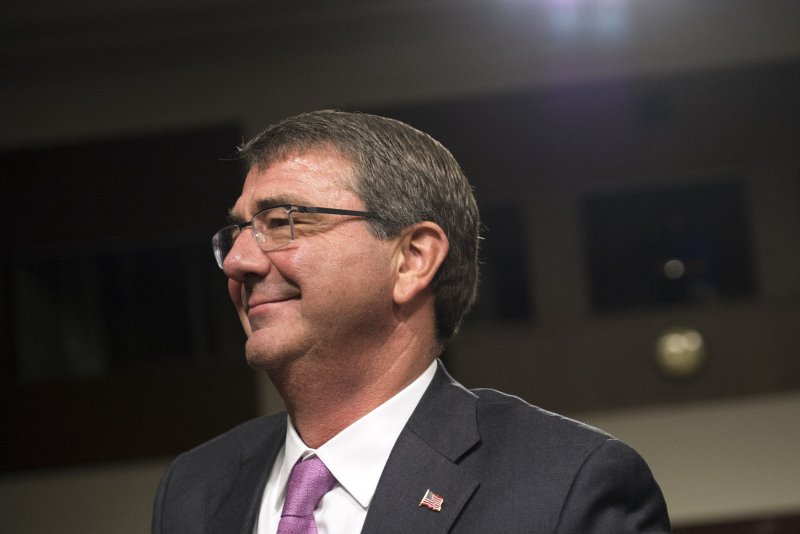U.S. Defense Secretary Ashton Carter met with South Korean Defense Minister Han Min-koo in Seoul on Monday. The two sides agreed to defend against North Korea missiles. File Pool Photo by Ron Sachs/UPI |
License Photo
SEOUL, Nov. 2 (UPI) -- U.S. Defense Secretary Ashton Carter said the deployment of a Terminal High Altitude Area Defense system on the Korean peninsula would be determined through the security alliance that binds the United States, South Korea and Japan.
Carter made the statement after meeting with his South Korea counterpart Han Min-koo in which the two sides endorsed a joint plan to deter North Korea nuclear missiles containing nuclear and biochemical warheads, Bloomberg reported. On Monday, the Pentagon and South Korea's military agreed to "detect, defend, disrupt and destroy" North Korea missiles that enter South Korea airspace.
"We spoke candidly today about North Korean threats – nuclear weapons, ballistic missiles, cyber, conventional military threats," Carter said. "Those threats continue to put at risk the peace and security of the peninsula, the region and the United States."
Seoul has said North Korea could have between 2,500 and 5,000 tons of chemical weapons, and U.S. officials have said Pyongyang is believed to have up to 20 nuclear warheads.
Those nuclear weapons are a grave concern for policymakers in Washington and Seoul and have been cited by some U.S. officials and a Lockheed Martin executive as a justifiable motive for THAAD deployment in South Korea.
But on Monday Carter said the deployment of THAAD would not be the outcome of a unilateral U.S. decision, South Korean newspaper JoongAng Ilbo reported.
"Any deployment of THAAD will be determined through an alliance's decision," Carter said, adding that there is a possibility THAAD would be placed in South Korea in a few years' time.
An unidentified South Korean official told the JoongAng that the United States has not arrived at a final decision on THAAD and if the system were deployed on a U.S. military base, Seoul would be consulted first.
Carter and Han also raised the issue of transferring wartime operational control to Seoul. Both agreed to keep the number of U.S. troops in South Korea stable, while stating a "new plan," or OPLAN 5015, would work out the details of the transition plan, factoring in variables such as South Korea's ability to respond to North Korea nuclear and missile threats.
The details of the plans, however, were not made public.















